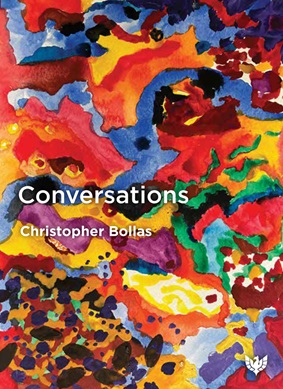Conversations

Book Details
- Publisher : Karnac Books
- Published : 2023
- Pages : 208
- Category :
Psychoanalysis - Catalogue No : 97591
- ISBN 13 : 9781800132474
- ISBN 10 : 1800132476
Reviews and Endorsements
Bollas invites the fascinating possibility that psychoanalysis is akin to poetic conjecture
Why am I here
What are we doing in this room together
I don’t know I don’t know
Could it be
Why me
Mama
Papa
This funny sad book wanders through the everyday and reflects on the nothingness of being
Disappearing down the drains - the uncanny fear of the loss of self. Terror
Why me
Why me
Anish Kapoor
Christopher Bollas brings a psychoanalytic and absurdist mind to ordinary conversations, lifting them into a form akin to theatre. Funny, larky, and existential, Bollas turns the private inside out and these exchanges voice the surprising, yet recognisable, inner feelings of our contemporary moment.
Mona Simpson
This is a very different experience than reading a realistic novel or short story, or even a realistic play. First, it's not clear what this form is – not poetry really, not plays really, not vignettes. Conversations is indeed the best description, but the author is not aiming for verisimilitude. He has cut the dialogue down; it's spare, subtextual. The closest I have read is Beckett. It's like the dialogue in Waiting for Godot.
Bollas is known as a psychoanalytic theorist, but he is wearing a different hat here. He has written novels and plays before. You will be missing a lot if you try to read this as psychoanalytic. It is a different category.
There are twenty-odd pieces, conversations in the book. The author is not trying to be all deep or disguised. You do get a sense of the actual person behind the pieces. Foibles and idiosyncrasies and all. That's a good thing. Some of the pieces I read through and I was curious about them, but only intellectually. Then there were 5 or 6 that when I read them sensitively, they got me on an emotional level. You get some modernist dialogue like this, and it hits you behind the eyes: it's poignant. It stays with you.
5 star Amazon review from August Baker
A unique book that moves us in a variety of ways. It is at once funny as can be, and then demonstrating a large array of contemporary concerns. It shows us the vacuity of so much of today's everyday life. Our looking for fulfillment in consumerism, our ideologies that render us effectively unreflective and manipulable, our derailed but ceaseless attempts to liberate ourselves even as we haven't a clue how to do so. Political lures that threaten us while we are oddly but falsely comforted by them. Ultimately, that such a book can be written gives us hope even as we live a failing human project. So, disturbing and light-hearted at the same time.
5 star Amazon review from Joseph Scalia III, Psychoanalyst
This is a wonderful "little" book: impish, challenging, disturbing, hilarious. Bollas strives to join up the worlds of discourse: what we say or write to one another and what we say or write to ourselves. These differing forms of conversation converge and that fusion allows Bollas to play with their similarities and differences. As always, Bollas pushes the edge. Enjoy.
5 star Amazon review from Danielle Coffey
I usually find Bollas brilliant but was surprised by how amusing this book is.
5 star Amazon review from Office of EBPR
Bollas is an original thinker who has contributed greatly to psychoanalytic theory as well as writing several comic novels and plays. [...] The poetic form shows us the essence of things – offers us recognisable emotional experience in an aesthetic form. There is something of this in Conversations where characters encounter each other, search for meaning and connection; hope, despair, fall out, reconnect, carry on.
Clea McEnery-West, Psychodynamic Practice, 2024
Bollas's beautiful prose and simplicity in explaining psychoanalytic concepts have greatly contributed to my learning and development as a therapist. [...] Bollas continues to engage with and respond to difficult ideas including war, but this time through art rather than trying to explain the unexplainable. Although this is not typical CPD, it does create a bridge between poetry and psychotherapy.
Emmanuelle Smith, psychodynamic psychotherapist, BACP Therapy Today, Nov 2024, Volume 35, Issue 9

